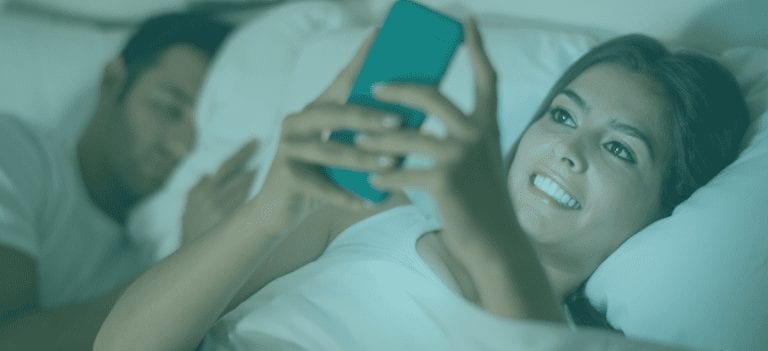Can Sleep Tracking Apps Help You Get a Better Night’s Sleep?

You probably know the feeling: you feel like you’ve had a full night’s sleep, but you wake up in the morning still groggy and tired. Since you may already keep your phone nearby while you sleep, using a sleep tracking app might seem like a good way to analyze your overall sleep habits. Sleep tracking apps attempt to put people more in sync with their bodies and their sleep cycles. But are these sleep tracking apps and devices really worth all the hype?
Are Sleep Tracking Apps and Devices Accurate?
You probably already rely on smartphone apps to help you with daily tasks: getting to a new destination without getting lost, finding a great deal online, or ordering takeout with ease and accuracy. When it comes to measuring your REM and light sleep, though, the premise behind sleep tracking apps could be fundamentally wrong.
Limitations of Sleep Tracking Apps
A drawback of these apps is the fact that they are based on the “average” human sleep cycle. Their goal is to help you wake up gradually without interrupting a sleep stage, since an interruption can cause you to feel groggy. However, no two people’s sleep cycles are exactly the same, and rarely do they match the 90-minute standards used by most of these apps.
One study found that about 70 percent of participants’ sleep cycles were as much as 20 minutes longer or shorter than the 90-minute average. Sleep researchers know that slow-wave sleep is most dominant in the first half of your sleep. However, the popular app “Sleep Time” incorrectly calculated people’s sleep stages much of the time. For example, the Sleep Time app underestimated light sleep by nearly 30 percent while it overestimated deep sleep by 11 percent.
Using an app on your phone to determine sleep patterns is flawed for another reason. Most people have multiple wake and active periods during the night that they might not even remember. You could be laying perfectly still in bed but be wide awake — and the sleep app or device might not be able to judge the difference. It might even note that you were awake longer than you actually were, leading you to believe that you’ve pinpointed the reason for your daytime drowsiness.
We all want a great night’s sleep, but do sleep tracking apps really help us get one? Even though most activity tracking devices are less precise on the finer points of sleep, they can be a fun way to get some insight on your sleep patterns and habits. In reality, though, sleep — like most human behavior — tends to be more complex than an app can assess with precision. Instead of using a sleep app, it could be beneficial to simply try different methods of relaxation before bed. If you suspect that you might have a sleep disorder, it’s best to seek out the advice of a healthcare professional instead of trying to diagnosing it yourself. Together, you can map out a plan to help you maximize those “zzz’s” for a healthy body and mind.
